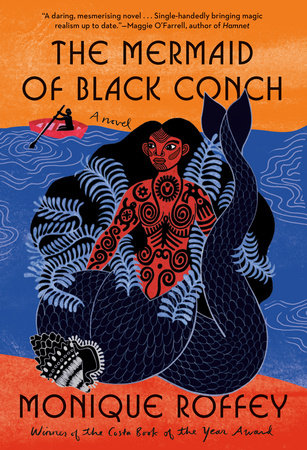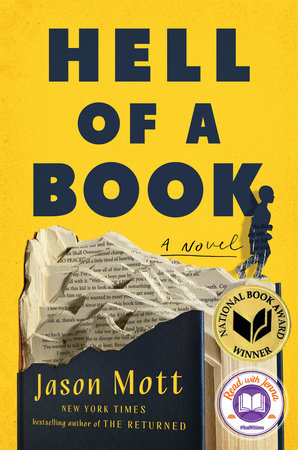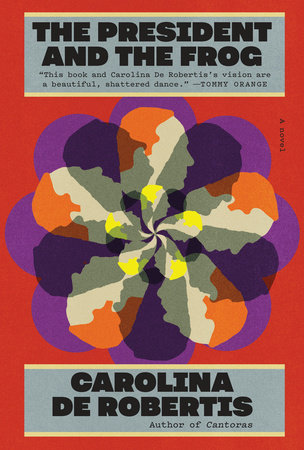
Yesterday my book club discussed Jason Mott's National Book Award-winning hilarious, heart-breaking novel Hell of a Book, a story of an unnamed Black man's life in a world where he is never seen as who he knows himself to be. What was most meaningful for me was that by the end of our discussion, this white not-particularly-contemplative group of older women settled into a profoundly personal conversation about self-acceptance.
All fiction, when done well, forces you to walk in another person's shoes … or into deeper levels of the shoes you are already wearing. And because of this, fiction can take the reader on an emotional journey to healing or coping with pain that may seem intractable.
What the following ten stories have in common is accepting realities that are personal as well as historical. Racism, genocide, spousal abuse, and more. How do you accept these things? These books leave little alternative. And by dealing with what's true, there is a form of healing, or at least a path to coping. The human journey is just that—no matter what your race, gender, or status—accepting truth on all levels.
But what is truth in these days of divided definitions?
When I say "truth," I am referring to what Ernest Hemingway meant when he advised writers to ". . . write one true sentence. Write the truest sentence you know." To me this means truth that comes from one's core. One's Essence—however you define that. It isn't about politics or disinformation vs. fact.
When a writer's Essence births a true story, it is told through true characters, and no matter how fantastical or removed from your life they may be, almost everybody can identify in some way and have a personal experience. That personal experience can sometimes be love or a refusal to love, which can manifest as an emotional aversion. If we hate, rather than blame the story, we can follow the aversion down to its root and perhaps learn something about ourselves—learn what we are refusing to accept. And if we can love the truth about ourselves, loving all the other stuff gets easier.
The Mermaid of Black Conch by Monique Roffey (Penguin Random House, July 2022)
To say this wild and original story is merely the tale of a mermaid who lived in the Caribbean and was captured by fishermen in 1976 and brought to the island of Black Conch would be like saying the Pacific Ocean is a large puddle.
The mermaid is a real character in the myth that we are all living in—a 400-year story where we think we can own or control one another, where power is currency, and where this delusion is driving us to a kind of Armageddon, that may be a requirement of rebirth.
The writing, imagination, and story are just wonderful. How much you decide to think about it is up to each reader, but you cannot avoid thinking about how we treat one another in a culture of colonialism, ownership, and racism.

The Sentence by Louise Erdrich (Harper Collins, Nov. 2021)
The narrator, an Indigenous woman named Tookie, is an original. She talks in a kind of romantic-comedy banter with her husband, or about her stint as a criminal, or about the ghost that haunts the bookstore where she works (owned in the novel by the author-as-character in her own real-life bookstore). The Sentence is so many things—a ghost story literally, but also a story of metaphorical historical ghosts from the past that we've never reconciled as well as the living manifestations in current history.
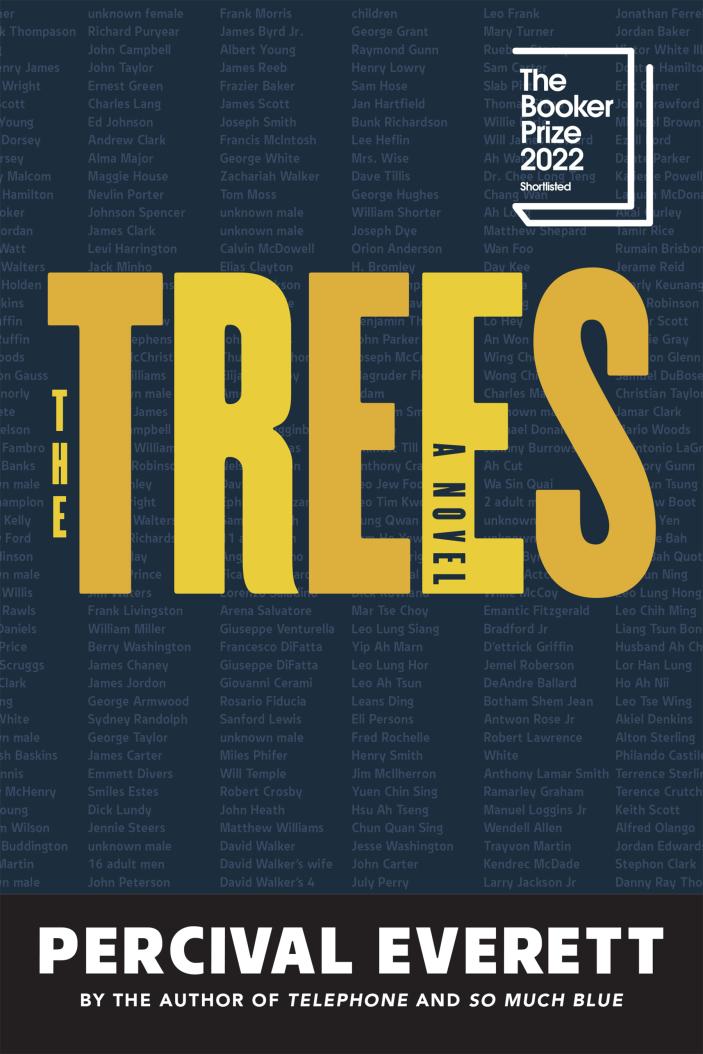
The Trees by Percival Everett (Graywolf, 2021)
Percival Everett writes books that absolutely need to be written, and The Trees could not be more timely.
It is a zombie story. A funny zombie story. A heart-breaking, devastating zombie story about the inevitable result of refusing to acknowledge, change, and make reparations for 400 years of slavery and its aftermath. It veers from wild and fantastical to heart-stopping reality in the form of lists of names of all the Black people who have been killed for being Black. This book both entertains and educates, stuns and inspires you to be the best person you can be.
Here Goes Nothing by Steve Toltz (Penguin Random House, May 2022)
If you console yourself that a better life awaits you in heaven, or if you're resigned to life being painful, but after all, it's only temporary, and once it's over, it'll be over, think again.
In this shockingly inventive, wildly funny epic about one man's life, death, and beyond, you may have some epiphanies about existence in general and how you want to spend or squander your time.
Author Steve Toltz is his own man and writer, but to give you an idea of the speed and spontaneity of his literary inventiveness, imagine if Robin Williams and Joseph Heller gave birth (they'd figure out how) to a prodigy writer son and they left him alone for a few years in a room with a typewriter. (Somehow this picture demands a typewriter, with its clamor, its swinging and dinging parts, and paper being rolled and ripped and sent in crumpled balls across the room.) Now imagine the kid grew up and, during the growing, read every book he ever got his hands on, developed a writer's skill for structure and language and ways of seeing that were utterly his own, and he decided to write a book about life, death, and everything in between and after. That's this book.
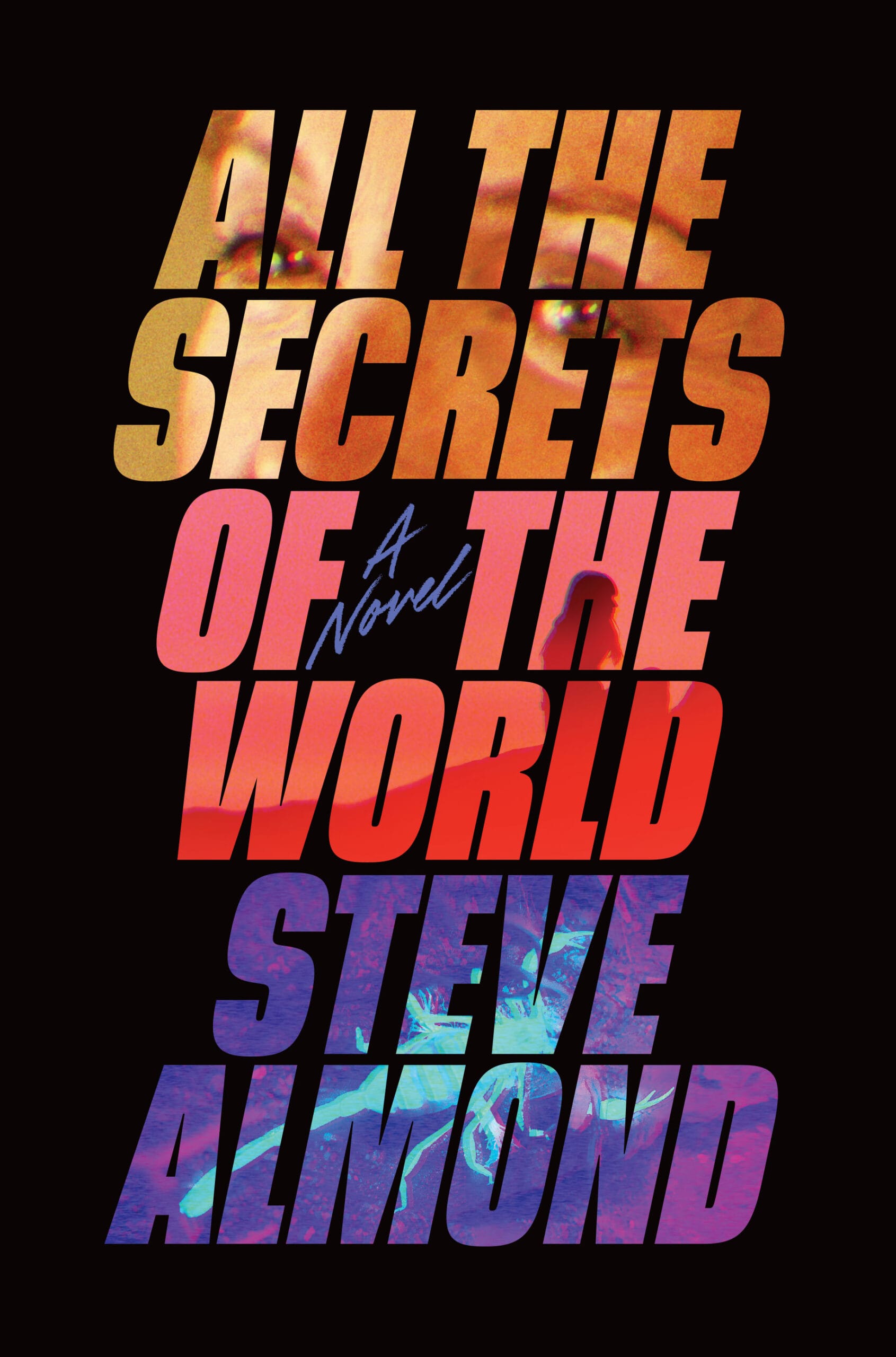
All the Secrets of the World by Steve Almond (Zando, April 2022)
The young Hispanic heroine of this story, Lorena, starts as a shy, innocent science geek who is given to great passion and contradictory actions when her commitment to justice is tweaked.
Over the course of decades, All the Secrets of the World, a story of grappling with systemic injustice, travels across Reagan's America, becoming a chase across desert terrains, through a cult, and ends up in a place of healing, but only after enormous loss. There is a detective mystery, philosophical quandaries, and perversion in many forms. We can't help but experience how distorted our reality is by exaggerations, part-truths, and a lack of nuance because blanket good and bad stories fuel our lust for drama and sense of superiority. And transformation only comes from exploring the dark matter within us.

I Can: The Four Freedoms for Kids by Fatima Berry (Freeman House Publishing, 2022), picture book
I bought this 10-page children's picture book after I learned that it not only teaches kids about the Four Freedoms (invented by the author/illustrator's mother, sociologist Bertice Berry, Ph.D), but it teaches that freedom is founded in responsibility rather than power. What a wonderful message.
And the pictures are so much fun! Gap-toothed kids of every race and color learn that they have the freedom to:
1. care for yourself
2. help others
3. help the world
And those freedoms earn you the fourth:
4.The freedom to be whatever you want to be.
I donated my copy to my neighborhood children's library. You can get books here.
Hell of a Book by Jason Mott (Penguin Random House, 2021)
As stated in the intro, this much-lauded novel is the story of an unnamed writer negotiating life in a Black skin that pre-empts most people from seeing him as an individual human being. But ultimately, the person who needs to see him as a human being, accepting all of his history, hurt, and uniqueness is the unnamed writer himself. What is so ingenious about this story is that it forces readers to see things through the writer's eyes. You will have an experience that is deeply personal. Or if you refuse, you may project all kinds of reasons onto Jason Mott or his character. The character travels to self-acceptance and in a way, this creates a blank screen for the projections of others. If you choose, your reaction to this book may be a litmus test for where you are in your own self-acknowledgement.
The President and the Frog by Carolina De Robertis (Penguin Random House, 2021)
Better than any spiritual how-to book, The President and the Frog dramatizes and, for me, made me live out the answering of the Buddhist koan, "Who am I really?"
The titular President (based on the real President of Uruguay, per the acknowledgements) entertains a journalist from Norway who wants to know about his journey from guerrilla fighter and prisoner to becoming the everyman leader of the country, eschewing all pomp and continuing to live in his little cottage with his garden.
The President never tells the journalist his complete story, but the reader gets to live it—his life in a hole where he meets a Zen master in the form of an ornery frog.
You may find yourself lifting out of the story to contemplate your own feelings, following them to their roots—better seeing who you really are. This is a book that meditators and contemplators will love.
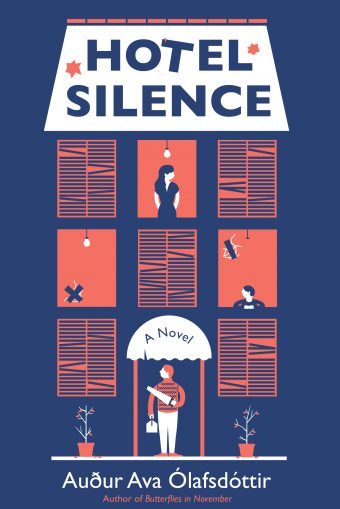
Hotel Silence by Ađur Ava Ólafsdóttir (Grove Atlantic/Black Cat, 2018)
Winner of the 2016 Icelandic Literary Prize for the best novel, Hotel Silence takes you on the transformational journey of a depressed suicidal man who finds meaning and a reason to stay alive in a war-torn country. This story of coping with insane cultural and political violence could not be more timely. If you think you don't matter, think again. This book may be the teacher you don't know you need.
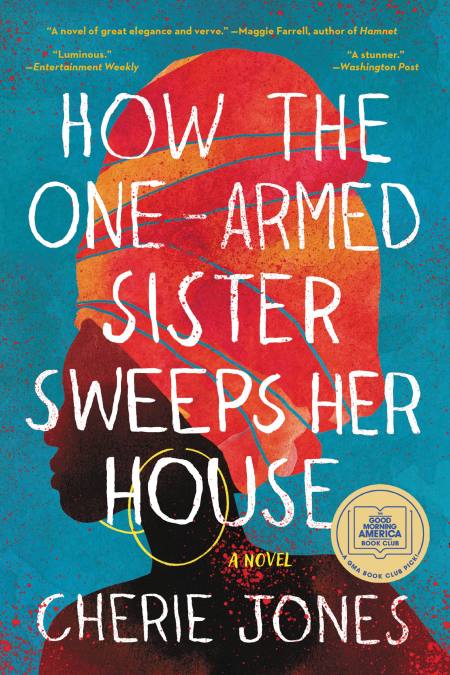
How the One-Armed Sister Sweeps Her House by Cherie Jones (Little Brown, 2021)
This novel has a fearless bawdiness about human functions—physical and psychological—that reeks of a truer truth than less complex writing. And by "complex" I do not mean anything remotely self-conscious, complicated, or literary. I mean that complex human stuff is what it's made of—the plot, the characters, the author's understanding of what she's writing.
The title tells you everything you need to know. How does a Black woman caught in a web of spousal abuse survive? The plot dramatizes the Black saying about "making a way where there is no way." There is liberation to be had here for readers in all walks of life.
